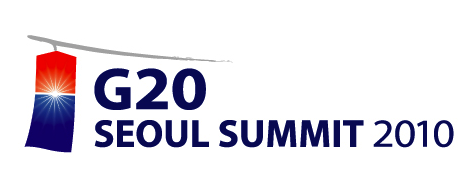The Chinese central bank has announced that it will raise the one year lending and deposit rates by 25 basis points. This has been a major surprise to international financial markets.
One can assume that this move was done very deliberately and very intentionally. The Chinese do not make policy decisions unless they are well thought-out.
The immediate reason for the move at this time: later this week there will be a meeting of the G-20 finance ministers. Next month in Seoul, South Korea there will be a meeting of the G-20 leaders.
The move is not an accident!
The International Monetary Fund just completed meetings earlier this month in Washington, D. C. Before that meeting, the United
The result of the IMF meeting? Little to no pressure was put on the Chinese giving indication that the United States was having no luck in its campaign to bring the Chinese "into line" on the value of their currency. The United States looked weak.
If China's action on interest rates is followed up by China allowing for a faster climb in its currency, the yuan, the Chinese will strengthen the position of their government within the G-20. It would also strengthen the role of other Asian nations as well as other BRIC nations in negotiations concerning the future of the dollar as a reserve currency.
Thus, the Chinese would build on the exhibited weakness of the United States at the meetings of the IMF in Washington and help to consolidate other nations around its leadership in world economic affairs.
Is the United States and China at war?
In one sense they are. Martin Wolf at the Financial Times of London has written, "In effect, the US is seeking to inflate China, and China to deflate the US. Both sides are convinced they are right…"
How has this situation developed? Well, in a real sense, the world has bifurcated. Part of the world, generally the developed countries, are struggling to restart their economies from the Great Recession, while many of the emerging countries are doing just fine, thank you.
The Federal Reserve System in the United States and the European Central Bank seem intent upon buying massive amounts of bonds to carry out a "Quantitative Easing" in an attempt to "jump-start" their economies. The prospect of this has resulted in a weakening of the dollar.
This has not been looked on favorably by the emerging nations who are experiencing economic growth and even a potential threat of inflation.
As a consequence, several of the emerging nations have already taken actions to protect the value of their currency from the weaknesses seen in the American position. These nations have already considered control techniques to protect themselves from the fall in the dollar exchange rate. They are considering the possibility having dual exchange rates, one for trade payments and one for non-trade payments.
The threat here is that world will break into two currency areas, one that is dollar/euro dominated and one that is dominated by China and the other emerging nations. And, certainly, the possibility of some kind of financial controls on foreign exchange is not a settling thought.
The reigning problem to me is the failure of leaders, especially leaders in the United
In effect, the United States, by pursuing the same type of policy it has followed for the last 50 years, is not only weakening itself but is providing the stage for the Chinese to exert its own leadership to those the United States policy is hurting.
The Chinese are moving to achieve a position of prominence in the world of the 21st century. What they are doing is very intentional and when they do things, they do them in their own time and for their own reasons. They are not always right, but that is not the point.
The point is that the Chinese are very deliberate in promoting themselves and their country. The United States, however, seems to be helping them achieve what they want to achieve. This cannot continue.
Source :http://www.istockanalyst.com/article/viewarticle/articleid/4593820

댓글 없음:
댓글 쓰기